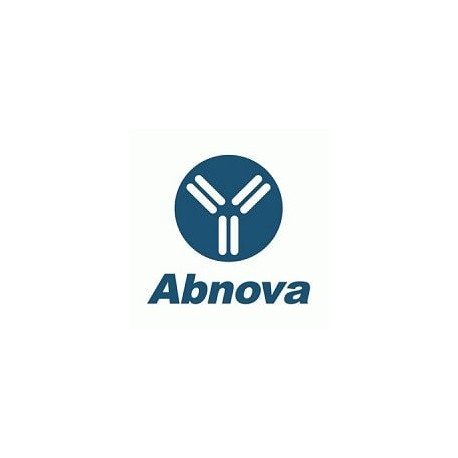Cart 0 Product Products (empty)
No products
To be determined Shipping
0,00 € Total
Prices are tax excluded
Product successfully added to your shopping cart
Quantity
Total
There are 0 items in your cart. There is 1 item in your cart.
Total products (tax excl.)
Total shipping (tax excl.) To be determined
Total (tax excl.)
Data sheet of Eif3e polyclonal antibody
| Brand | Abnova |
| Product type | Primary antibodies |
| Reactivity | Bovine,Dog,Human,Monkey,Mouse,Rat |
| Host species | Rabbit |
| Applications | ELISA,WB-Ce,WB-Re |
More info about Eif3e polyclonal antibody
| Brand: | Abnova |
| Reference: | PAB10203 |
| Product name: | Eif3e polyclonal antibody |
| Product description: | Rabbit polyclonal antibody raised against synthetic peptide of Eif3e. |
| Gene id: | 16341 |
| Gene name: | Eif3e |
| Gene alias: | 48kDa|Eif3s6|Int6|eIF3-p46|eIF3-p48 |
| Gene description: | eukaryotic translation initiation factor 3, subunit E |
| Immunogen: | A synthetic peptide corresponding to C-terminus of mouse Eif3e. |
| Protein accession: | NP_032414;P60229 |
| Form: | Liquid |
| Recommend dilutions: | ELISA (1:90000) Western Blot (1:1000) The optimal working dilution should be determined by the end user. |
| Storage buffer: | In 20 mM KH2PO4, 150 mM NaCl, pH 7.2 (0.01% sodium azide) |
| Storage instruction: | Store at 4°C. For long term storage store at -20°C. Aliquot to avoid repeated freezing and thawing. |
| Quality control testing: | Antibody Reactive Against Synthetic Peptide. |
| Note: | This product contains sodium azide: a POISONOUS AND HAZARDOUS SUBSTANCE which should be handled by trained staff only. |
| Product type: | Primary antibodies |
| Host species: | Rabbit |
| Antigen species / target species: | Mouse |
| Specificity: | This antibody is specific to mouse eIF3S6/Int6 protein. |
| Reactivity: | Bovine,Dog,Human,Monkey,Mouse,Rat |
| Application image: |  |
| Application image note: | Western blot using Eif3e polyclonal antibody (Cat # PAB10203) shows detection of endogenous Eif3e. Specific staining is not present in lysates containing lentiviral knockdown vectors (shRNA #1 and #2. Control vectors, specifically a scrambled sequence (Ctl NS) and a sequence against an unrelated gene (Ctl #2), were also used. Personal communication, J.Lee, NCI, Bethesda, MD. |
| Applications: | ELISA,WB-Ce,WB-Re |
| Shipping condition: | Dry Ice |
| Publications: | Fission yeast Int6 is not essential for global translation initiation, but deletion of int6(+) causes hypersensitivity to caffeine and affects spore formation.Bandyopadhyay A, Matsumoto T, Maitra U. Mol Biol Cell. 2000 Nov;11(11):4005-18. |


